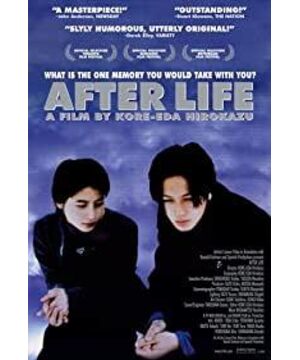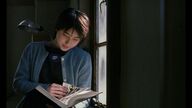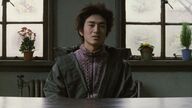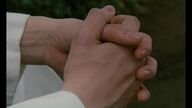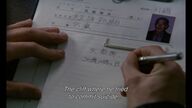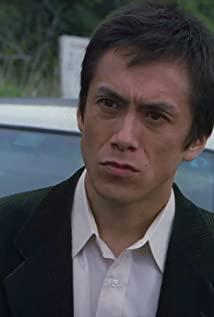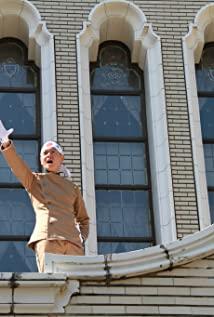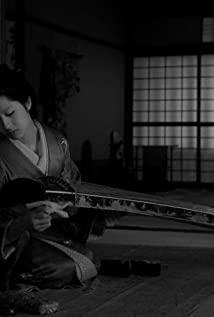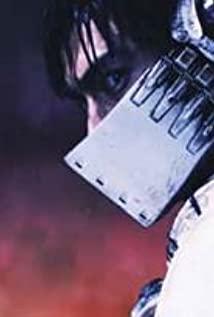It should be said that this is not a good-looking film, because I expected it to be a warm and gorgeous movie of Shunji Iwai style. This movie, where most of the pictures are in low light, has a slow pace, and it took a lot of effort to turn it around. However, when I realized what this movie was about, I suddenly began to worship Hirokazu Kee. How should I put it? When watching this movie, I remembered that very interesting metaphor, like a little hedgehog showing you his soft belly-a movie about movies, I almost shed tears.
The literal translation of the title is "wonderful life", and the English name is written as "After life". I think it is not as good as this Chinese translation. The drama of this movie is very powerful-in its "setting", if you look at it as a fantasy movie. This setting is that everyone will come to a transfer station after death, where there is a week, from Monday to Wednesday, these dead people will choose a piece of their most precious memory from their lifetime memories, and then tell the staff . These memories will then be made into a movie, and then these people will watch this movie, and then leave here with their best memories to go to heaven.
This setting really moved me for a moment. Those "workers", that is, angels, are presented as a crew in the film, and this week's work is also presented as the filming process of a film from play to screening. Ha, what a lovely story. The angels, or the movie people, they are the ones who don't want to leave. They are unwilling to go to heaven, because when they go to heaven, they can only leave a memory in their lives. They choose to stay because they choose not to forget; and the function of this transfer station or the movie is to keep people's most precious and beautiful memories. Therefore, the film shooting behavior shown by Hirokazu Ee in the film has a very rich meaning in an instant. The film is so beautiful and important. This is what Hirokazu Ee would like to say as a "film worker".
Suddenly I felt that this film review was a bit incoherent. In fact, when I watched the film yesterday, I felt like I was poked by Hirokazu. From a rational point of view, there are too many films discussing the movie itself. Kislovsky’s "Film Fans" or Woody Allen’s "Purple Roses in Cairo" can all be said, but this film After the boring hour of the previous hour, the film finally started, and suddenly it took me a second-probably people who have filmed themselves will have this feeling of resonance. Looking more rationally, Zhi Yuhe undoubtedly learned a lot from Hou Xiaoxian. The most typical thing is the window in the background. This is too interesting. In addition, Jia Zhangke’s "Twenty-Four Cities" undoubtedly has a very clear relationship with this movie. Most of the content of "The Next Stop, Kingdom of Heaven" was interviews in the first hour, but the relationship lens was still given-ha, It was Hirokazu Kee who wanted a feature film, not a "fake documentary." When doing the data, I found that Zhi Yuhe had a good relationship with Hou Xiaoxian, Yang Dechang, and Jia Zhangke. It was really interesting.
Hey, I really lack the ability to write my favorite movies. Although I didn't give a high score to this film, because there were obvious flaws in the play: the last forty minutes were actually the main line of the film, but compared with the previous one, it looked like a branch line. The conclusion is that the previous paragraph is too long. I thought it was enough to control the interview to 40 minutes, and the lines of the other two protagonists should be buried a little bit more. However, the line later moved me slightly, "I found that I have become a part of other people's happiness", so this "old angel" decided to leave. The memory he retained was his work in this transit station in heaven. That is-the memory of making a movie. So the lights came on, and the people sitting in the audience filming the film disappeared.
If this book were shot by Shunji Iwai, what would it look like? It should be a sunny environment, with a warm yellow tone, the film library in the afternoon sun, and the white curtains raised in the wind; there should be sad music full of memories, with a touching story. Of course, the most important point is that the movie composed of the best memories of everyone's life will definitely be shown in the cinema, and then in the moving music, the people in the audience will gradually disappear and go to heaven. It was Hirokazu Eede who did the opposite almost completely, reducing the music to nothing, and all the sensational parts were taken lightly. The point is that in his case, the film that was filmed was finally presented and not presented—we only saw a piece of the film, which is the memory of the angel who decided to leave. So the act of presenting the filming was emphasized. Perhaps this is also the appeal of Hirokazu Edema—not sensational.
This is Zhi Yuhe's soft belly, and the place that touched me in the film. It was Zhi Yuhe who said that the people who make the movie are all angels. Angels don’t want to forget. Angels watch other people’s lives quietly and make other people’s stories. The most precious memory of their lives is making movies.
View more about After Life reviews


